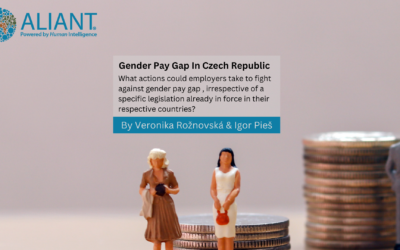REMOTE WORK IN POLAND
Is your employee asking to work remotely from abroad? Technologies make it possible, but what are the legal implications?
Our Labor & Employement Practice Area Group shared their insights and experiences on topic of “workaction”, i.e work-from-anywhere in the different jurisdictions outlining the main issues that an employer should take into consideration. We have created Ala seven part series on this topic.
Part II of VII explains Polish position on this topic .
Background
Remote work, understood as regular or temporary performance of employee duties at home, is not yet regulated by Polish labour law. However, since the outburst of pandemic of COVID-19 a special act of 2 March 2020 applies for the duration of the pandemic and for the duration of the state of pandemic emergency that allows employers to order employees to perform work for a specified period of time in the form of a home office. Since the home office has become a largely popular and seeked solution both for the employees and for the employers, the Polish legislator noticed the need to regulate this way of performing work in the Labor Code and the proper new regulations are being currently processed.
Legal Position In Poland
The amendment to the Labor Code concerning working remotely is currently in progress, yet a lot of companies that allow working remotely are still basing on the special COVID-19 related Act of 2 March 2020 about special solutions related to the prevention, counteraction and combating COVID-19, other infectious diseases and the emergencies caused by them that is still in force. However both the new worked -on legislation and the special COVID-19 act as of now say nothing about the possibility of working remotely from abroad which also means working remotely from abroad is not prohibited but it might have legal consequences concerning taxation and social security issues.
If the remote work form abroad is supposed to be only a temporary and not lasting solution e.g. during extended holidays, vacation or due to family reasons it is not currently considered to have much impact on the legal aspects of the employment contract.
With regard to regular remote work from abroad, the regulations of the European Union are applicable, in particular “Rome I” which might cause suprises especially to the employers, because either the Parties shall choose applicable law in the individual work agreement or the law of the foreign country where the employee regularly works will apply. Even in cases where the applicable law has been chosen by the parties in the contract, the employer must be aware that some work-related legislation of the foreign country of the employee’s residence might apply as “Rome I” allows the country of residence to impose its regulations considered as particularly important.
Social security and insurance against accident at work issues
Working remotely from abroad might have consequences in the social security and those consequences will differ depending on what country will the employee work from, especially whether it is an EEA country or other. The rules resulting from the provisions on the coordination of social security systems in the EU and EEA – Regulation (EC) No. 883/2004 of the European Parliament and of the Council on the coordination of social security systems – stipulate that the employee is subject to the provisions on social security only in one country – where he works. The obligation to pay adequate social security charges in the other country must be taken into account by the employer whose employee is planning on working remotely from abroad.
Tax risk for the company (permanent establishment)
Performing work from another country may cause tax consequences for both employee and employer.
The employee must verify whether Poland and the foreign country from which the remote work is performed have concluded a double taxation avoidance agreement otherwise double taxation might occur. If the double taxation avoidance agreement has been concluded generally a 183 days rule will apply – if employee’s stay in the territory of the other country exceeds 183 days, tax in the other state will apply.
The Polish employer is at risk of additional taxation in the other country due to the possibility that the tax office of the other country might consider the employee’s remote work performed in that country as a permanent establishment of the Polish company and request the payment of the relevant tax on the income deemed to have been generated in that other country. Also foreign companies whose employees work remotely from Poland are at similar risk of taxation in Poland due to the same reason.
Immigration
A rule non-EU citizens must apply for a permit to work and stay in Poland unless bilateral or multilateral conventions or Polish internal regulations provide for exemptions. Each case needs to be verified individually.
Given the complexity of the problems generated by working remotely from abroad a verification of all risks is recommended for both employees and employers.






